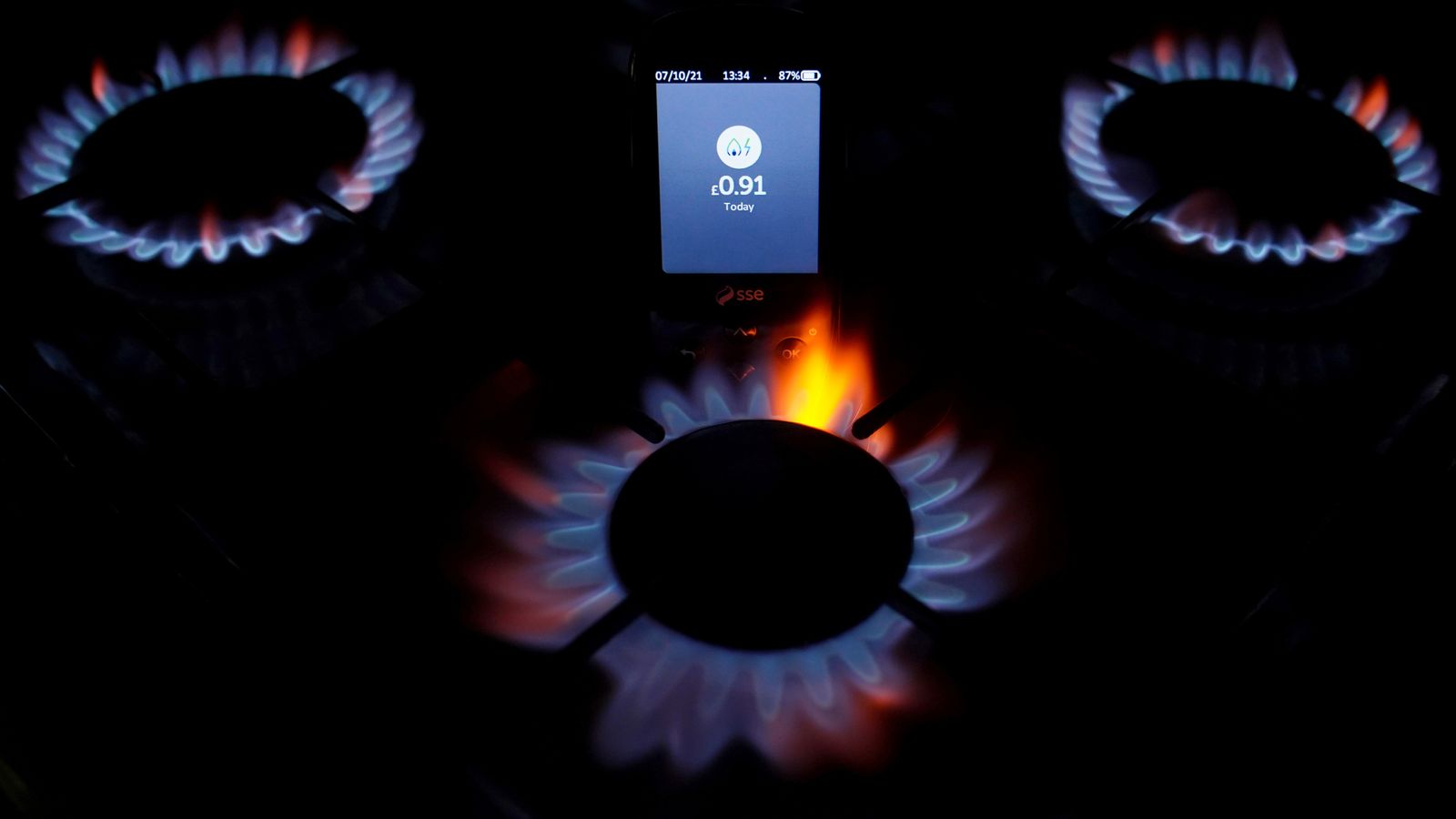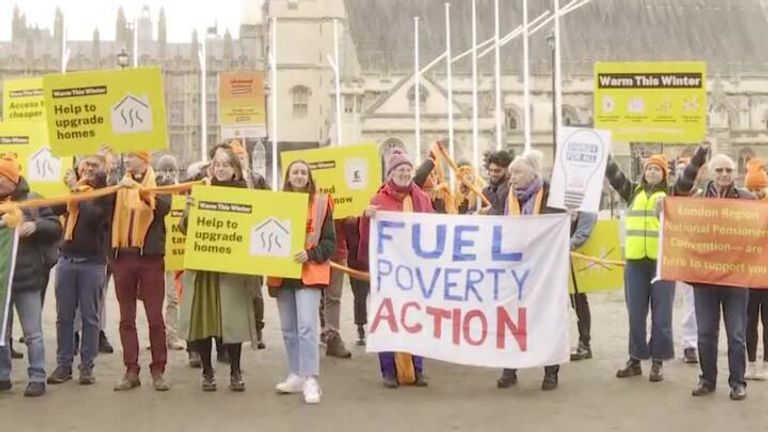The energy regulator has reduced the cap on the amount energy companies can charge customers but bills are still expected to increase.
Ofgem has today announced the cap on the amount typical households pay on electricity and gas bills will drop to £3,280 from 1 April.
It’s a decrease from the previous cap of £4,279 effective from the beginning of January to the end of March and reflects the fall in wholesale energy prices.
Cost of living – latest: Warning energy bill rises will be ‘hammer blow’ to households
The price cap sets a maximum amount suppliers can charge per unit of energy and is regularly reviewed by Ofgem.
The amount is not the maximum that can be charged – customers using a lot of energy will have higher bills – but instead reflects typical usage levels.
Households had been protected from the previous high price cap due to the government’s energy price guarantee (EPG) which capped the energy unit price resulting in an average household bill of £2,500.
But bills are now likely to rise as the EPG threshold will increase to £3,000 for an average household from 1 April. Even with the £500 reduction in the price cap, the scheme will cost an estimated £26.8bn.
As a result, the average home can likely expect bills to rise by an estimated 20%, an increase of £500 a year, according to energy consultancy Cornwall Insights as households absorb the gap between Ofgem’s price cap and the EPG.
Prices are to rise even further when the end of the £400 energy rebate scheme is factored in, Dr Craig Lowrey, the principal consultant at Cornwall Insight, said.
“Regrettably the forecast for April looks set to leave the price cap above the increased energy price guarantee level.
“While tumbling cap projections are a positive, unfortunately, already stretched households will be seeing little benefit before July.”
Read more:
Cost of living: Why are bills rising so sharply?
Under the rebate scheme, six instalments of about £66 were paid monthly to bill payers from October.
Commenting on the high bills, the Ofgem chief executive said, a social tariff which offers lower energy prices for vulnerable customers should be urgently examined.
“A very tough time for many households across Britain”
“Where people are struggling, we urge them to contact their supplier to make sure they are getting all the help and support they are entitled to,” Jonathan Brearley said.
“We also think that, with bills continuing to be so high, there is a case for examining with urgency the feasibility of a social tariff for customers in the most vulnerable situations.”
There is some good news ahead, Mr Brearley suggested, but prices are still not going to fall to the levels seen in the last 18 months.
“Today’s announcement reflects the fundamental shift in the cost of wholesale energy for the first time since the gas crisis began, and while it won’t make an immediate difference to consumers, it’s a sign that some of the immense pressure we’ve seen in the energy markets over the last 18 months may be starting to ease,” he said.
The pressure, however, will not be removed entirely.
“Prices are unlikely to fall back to the level we saw before the energy crisis,” he said.
“Even with the extensive package of government support that is currently in place, this is a very tough time for many households across Britain.”
Spending on the EPG will effectively be zero from July until the end of 2023 as Ofgem’s energy price cap is expected to fall below the guarantee, according to Cornwall Insights.
Ofgem’s July and October caps are forecast to be below £3,000. Such caps would mean there is no price difference in amounts charged by energy companies and what customers pay.

